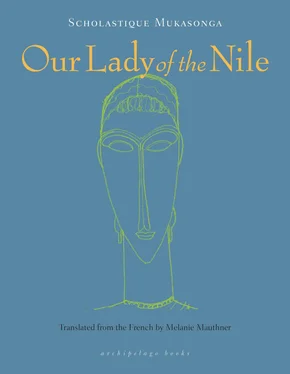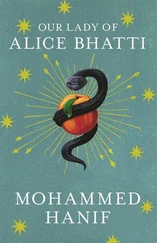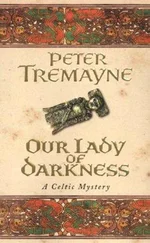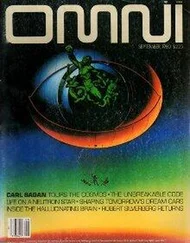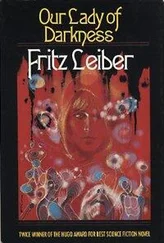Virginia walked into the store, bought a bottle of Primus, then spent a long time haggling at the market with an old grouch over a piece of tobacco, which he cut from a long, plaited spiral. Finally, she made a beeline for the women sitting on their frayed mats selling golden-brown doughnuts from bowls decorated with red flowers. She bought three of them, watched by a row of kids who sat cross-legged opposite the trader, for as long as the market was open, their eyes bright with craving for these inaccessible delights. Virginia walked down the road that led to the hill where her aunt lived.
The narrow path followed the ridge, above the slope of cultivated terraces that ran down to marshland planted with maize. All the hills, as far as the eye could see, were similarly terraced, and dotted with low houses, some round, some rectangular, their roofs mostly thatched, a few tiled. Many were hidden beneath thick banana groves, their presence betrayed only by the bluish plumes of smoke that stretched out lazily above the large lustrous leaves. Coffee bushes, planted in neat rows, already hung heavy with their bunches of red berries. A few tufts of papyrus sedge managed to thrive in the swampy hollows, while four black-crowned cranes strutted with carefree elegance, oblivious to the women working their fields.
On the peak of the highest hill stood the impressive buildings of the mission. The church’s crenellated tower reminded Virginia of a picture in her history book: the fortress in Europe where noble knights once lived, according to Sister Lydwine’s oft-repeated lesson.
The sun was about to dip beyond the hills when Virginia glimpsed her auntie’s house at the end of the path. Skolastika, who must have recognized her niece’s silhouette from far off, immediately left her field, gathered in her basket the sweet potatoes she’d just unearthed for the evening meal, raced uphill, and prepared to welcome her guest at the entrance to the enclosure before Virginia could get there. Skolastika barely had time to rip up a handful of grass with which to brush the dried earth from her legs and feet, before smoothing down the wraparound she’d hoisted above her calves to work the field. Virginia had removed the basket from the bag and balanced it on her head, as custom demands. “Welcome, Virginia,” said Skolastika. “I knew you were coming, I was informed of it. Last night, the fire began to crackle, sparks dancing above the flames. It was a sign I would receive a visit. So then I spoke the words one must utter at such a moment. ‘ Arakaza yizaniye impamba , may my guest not arrive empty handed!’ But I knew very well it was you who was coming. I am Nyogosenge, your paternal aunt. Leoncia had to let you come.”
She bade Virginia enter the yard and the pair of them walked up to the house. Skolastika stood at the threshold, and Virginia gracefully bent forward so her aunt could take the basket with both hands, then go and put it down, slowly and carefully, on the shelf behind the door, before it took its place of honor between the churns and the milk pails.
Now it was time for the welcome greetings. Skolastika and Virginia shared a long and close embrace, patting each other while the aunt whispered the long litany of wishes in her niece’s ear: “ Girumugabo , may you find a husband! Girabana benshi , and bear many children! Girinka , may you have cows aplenty! Gira amashyo , a plentiful herd! Ramba, ramba , long life! Gira amahoro , may peace be with you! Kaze neza , you are welcome here!”
Skolastika and Virginia entered the house together, and Skolastika opened Virginia’s basket, took out the calabash, selected two straws from their quiver-shaped case and handed them both to Virginia. The two women squatted down opposite each other, and Skolastika placed the gourd between them. They each sucked up a mouthful of beer, and Skolastika gave a deep and appreciative sigh that expressed her contentment.
The first day of Virginia’s stay at her aunt’s was, of course, a series of triumphal visits to the neighbors. That night, Skolastika recounted to all the assembled family every single mark of respect her lycée niece had received, even from Rugaju, the pagan, indeed Skolastika made the most of Rugaju’s words to suggest he get his children christened — at least the boys — so they could attend school like everyone else. Skolastika’s husband questioned Virginia at length about her studies: he’d spent two years at the local seminary and proudly showed her the three books on arithmetic, grammar, and conjugations he kept safely stored away as testimony to his advanced studies. Skolastika didn’t seem to appreciate her husband’s interest in her niece. At bedtime, after much beating around the bush and exaggerated expressions of deference, apology, and respect, Virginia finally told her aunt that she wouldn’t be going to the mission the next day as planned. She had to go see Clotilde, her childhood friend, with whom she’d played, danced, and skipped rope with whenever she visited Skolastika. She’d heard that Clotilde had gotten married and just had a child. She’d promised to visit her as soon as she arrived. Skolastika was somewhat shocked at the bold manner in which Virginia addressed her paternal aunt, but she chose not to show her irritation. Virginia was a student, after all, her teachers at the lycée were white, and there were some things you just couldn’t understand about people who always lived among whites. “Very well,” said Skolastika, “go and see Clotilde, and you’ll come with me to the mission the day after tomorrow. Father Fulgence wants to see you.”
Virginia was a little anxious when she said good-bye to her aunt before leaving to go see Clotilde. But Skolastika let none of her disappointment show, and even gave her a handful of igisukari bananas — the sweetest of sweet things — for Clotilde and her baby. Virginia put the bananas in her bag and set off to her friend’s house. However, just after she’d passed the little grove of reforested eucalyptus, she switched direction and, after several long detours, reached a steep path leading down to the swamp. Halfway down it was Rugaju the pagan’s house. Scruffy kids were playing in the yard, running about and squabbling. As soon as they saw Virginia enter the yard, they froze in astonishment.
Virginia motioned to the tallest kid, who looked about ten.
“Come here, I’ve got something to tell you.”
The boy hesitated, then shoved his brothers and sisters out of the way and walked over to Virginia.
“What’s your name?”
“Kabwa.”
“Hey, Kabwa, do you know Rubanga? Do you know where he lives?”
“Rubanga, the witch doctor? Sure, I know Rubanga. I’ve been to his place a few times with my dad. No one but my dad goes to see that old jabberer. Folks say he’s crazy, they also say he’s a poisoner.”
“I want you to take me to Rubanga.”
“You, the student, take you to Rubanga! You must have someone to poison!”
“There’s no one I want to poison. I want to ask him something. To do with the lycée.”
“The lycée? They do some strange stuff at the white school!”
“I’ll give you some doughnuts if you take me.”
“Doughnuts?”
“And a Fanta.”
“An orange Fanta?”
“An orange Fanta and doughnuts.”
“If you really give me an orange Fanta, I’ll take you to Rubanga’s place.”
“The orange Fanta and the doughnuts are in my bag. As soon as I see Rubanga’s place, they’re yours. But then you leave and you don’t say anything to anyone. Did they ever tell you the story about the evil stepmother and the kid who’s not hers that she put to sleep in the mortar? I’ll ask Rubanga to cast a spell on you; if you tell, you’ll end up like that kid in the mortar: you’ll stop growing and you’ll never get a beard.”
Читать дальше
